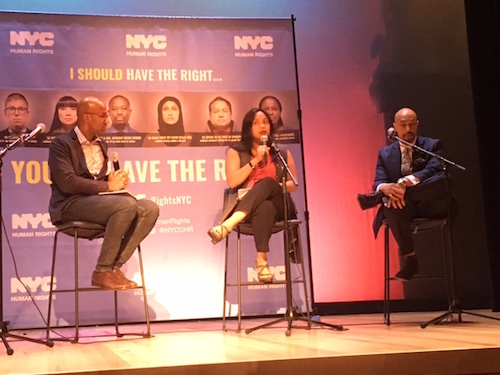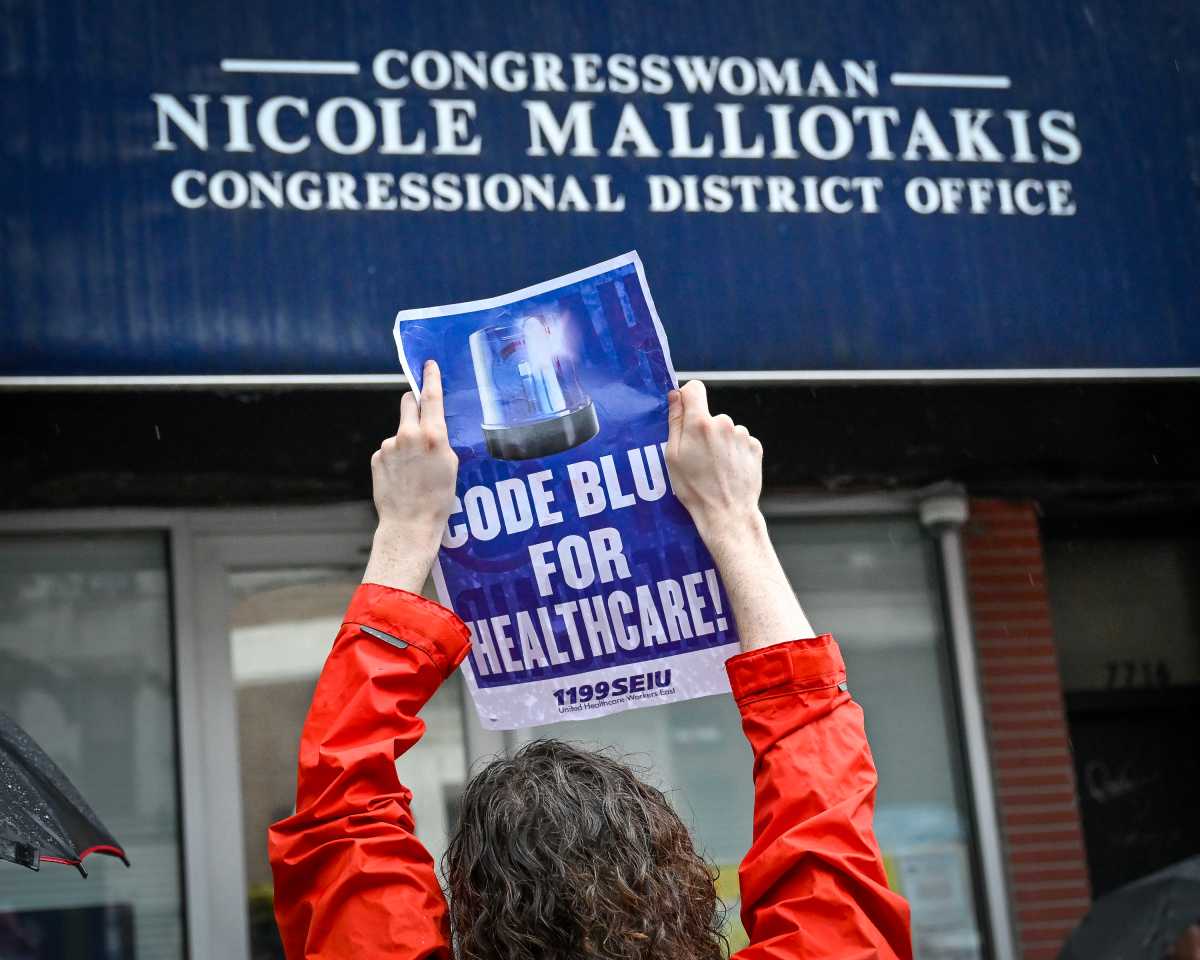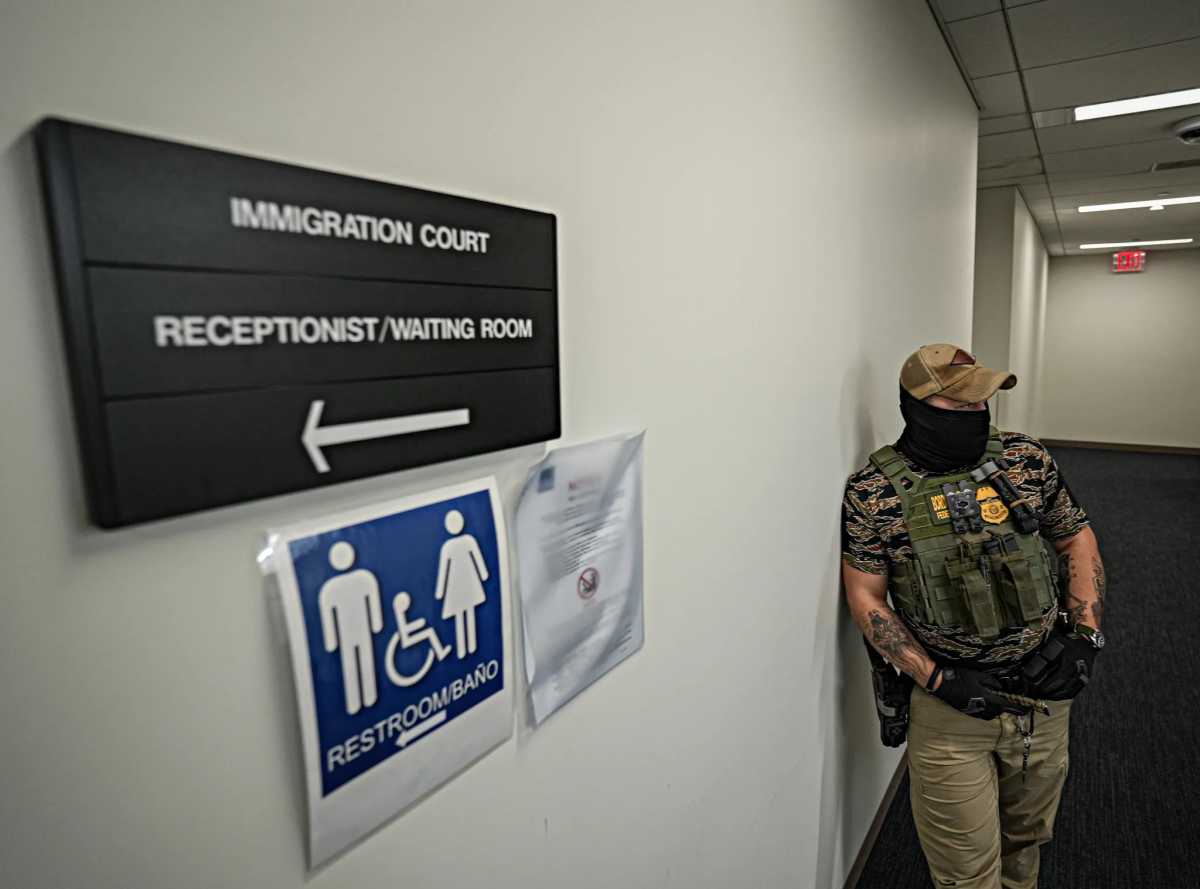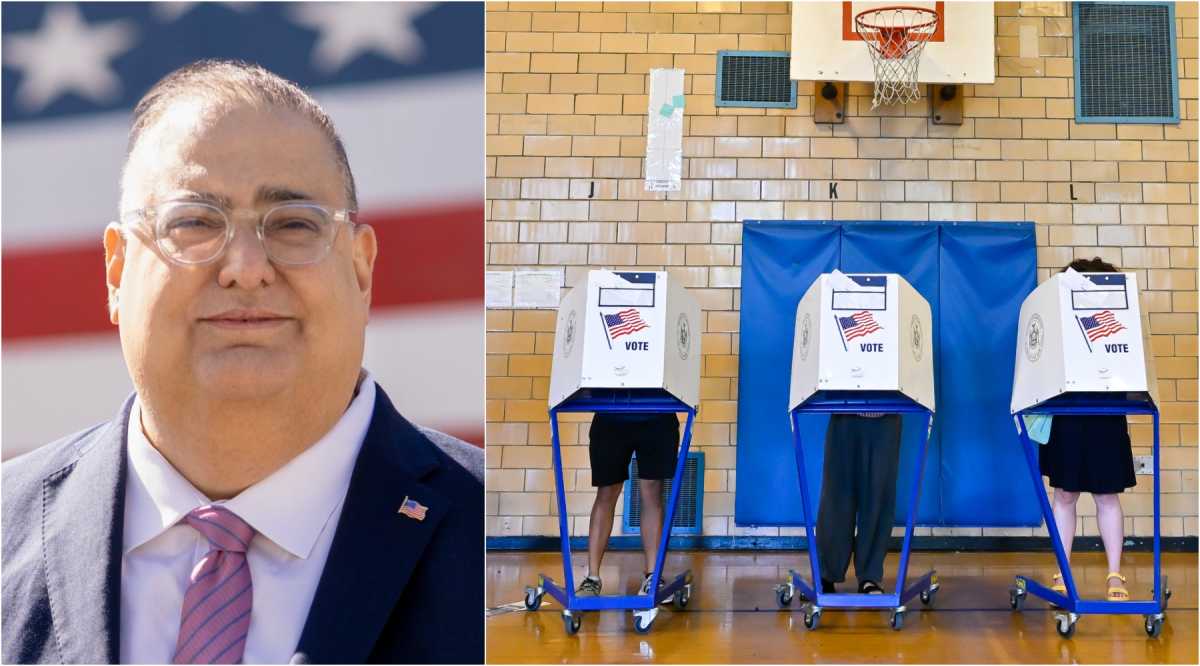New York City Commission on Human Rights (NYCCHR) Commissioner Carmelyn Malalis came to Bedford-Stuyvesant’s Restoration Plaza last night in the agency’s effort to reach out to what they perceive to be one of New York’s most vulnerable communities.
Malalis was part of a panel discussion that journalist Kai Wright moderated and included Rabbi Bob Kaplan from the Jewish Community Relations Council of New York, Kirsten John Foy of the National Action Network, and Michelle Laguerre from the Jewish Board of Mental Health.
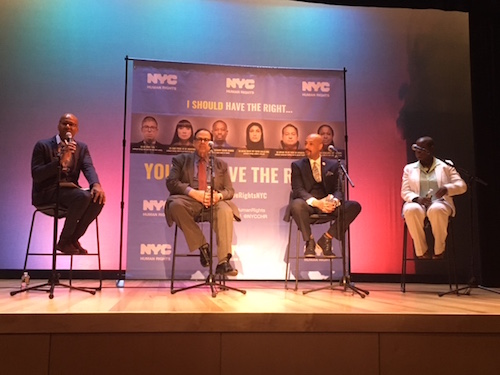
During the discussion, the five experts expounded upon the ways the neighborhood of Bedford-Stuyvesant has changed over the past few years, at the expense of its minority and low-income tenants.
“There’s certainly a lot of change going on in New York City,” said Malalis. “And we recognize that not everyone in the city necessarily benefits from that change, and certainly not at the pace that other people here do.”
Malalis and her peers elaborated on that point by citing several examples of the neighborhood’s longtime tenants getting priced out of their own homes and subjected to racial harassment. Malalis pointed out that of all the complaints her organization received in 2016, about 50 percent were related to racial discrimination, and most of those were filed by black New Yorkers.
“What’s at stake for many black people is their legacy,” said Foy. “In Bed-Stuy, you have brownstones that were owned by grandmothers and great-grandmothers who are no longer able to maintain their properties, or their properties are being stolen from them.”
Foy further explained that the fight to resist gentrification is particularly important to Bed-Stuy, due to its historical status as one of New York’s quintessential African-American neighborhoods.
“When the real estate industry decides it is more profitable to jettison the history, to jettison the culture, to jettison the people in the name of profiteering, then what’s at stake is our very culture. Harlem and Bed-Stuy are cultural capitals of black America,” Foy said.
Over the course of the discussion, the panel repeatedly encouraged attendees to call the NYCCHR whenever they feel that they’re being discriminated against, since the safety and comfort of New York’s most marginalized groups is their highest priority.
However, during the Q&A, some of the audience members expressed skepticism that the NYCCHR would be able to offer a concrete solution.
“I’ve gotten a lot of knowledge tonight on what’s going on,” said one attendee, “but I’ve gotten no answers on solutions. I need to know what I need to do to change things. Who do I need to speak to that’s gonna change things?”
The attendee then proceeded to ask, specifically, what he should do if he faces hiring discrimination. In response, Malalis assured him that her organization will be perfectly capable of helping him if he calls in.
“I can’t provide you with a job,” said Malalis. “What I can say is that if you feel like you’ve applied for a job and you haven’t gotten that job because you’re black or because of your ethnic background or because of your religion. I’m gonna say, tonight, before you leave, I will connect you with one of our lawyers here, and they will call you back.”
Furthermore, Malalis said that she plans to continue keeping her organization as open, engaged and available as possible. The panel discussion, said Malalis, was the first part of what will be an ongoing effort to keep the borough’s most vulnerable citizens educated and empowered.
“We want you all to know that this is an important conversation for us,” said Malalis. “We want this to be the first of many conversations, and we want to be able to talk about this and other issues.”


